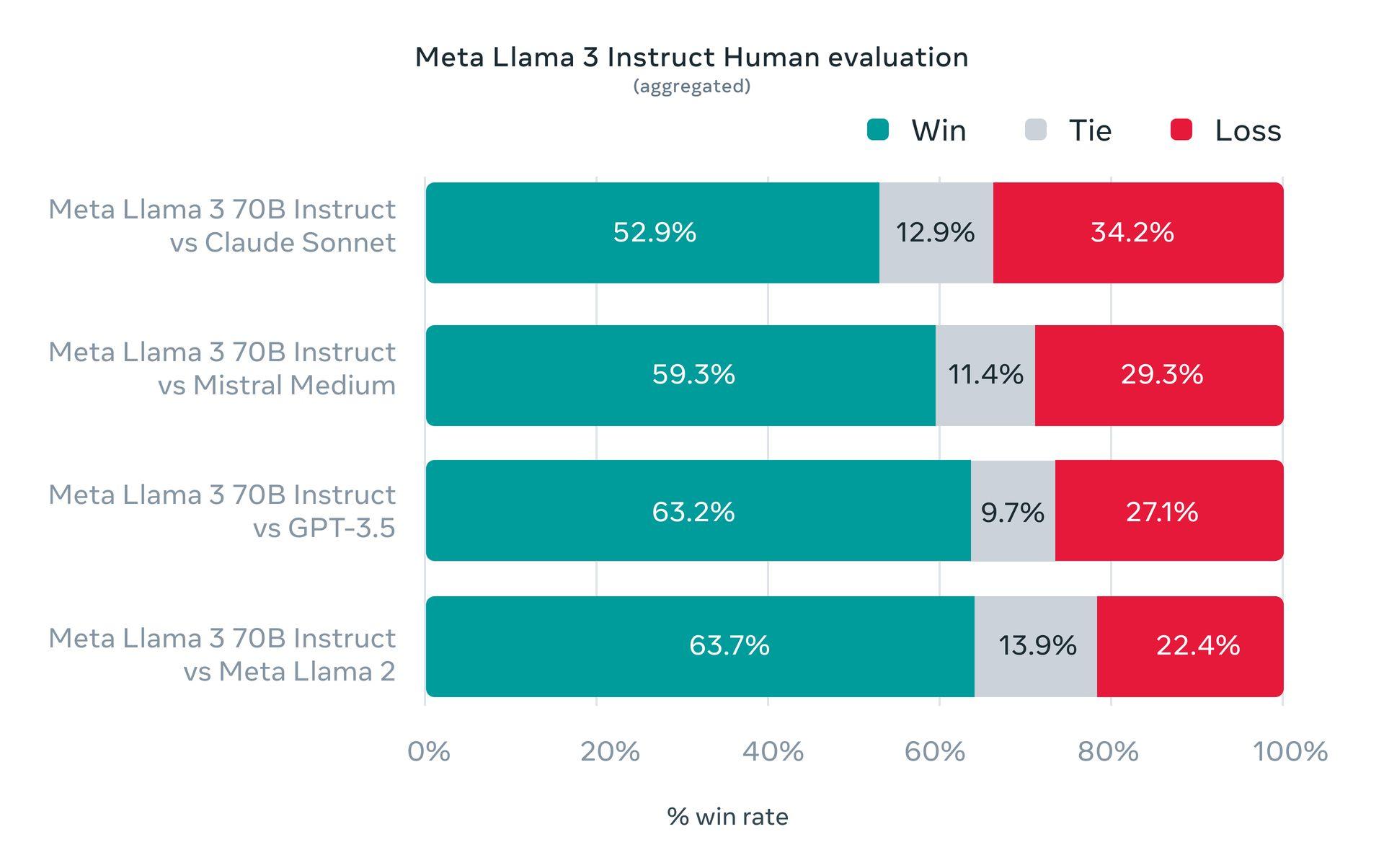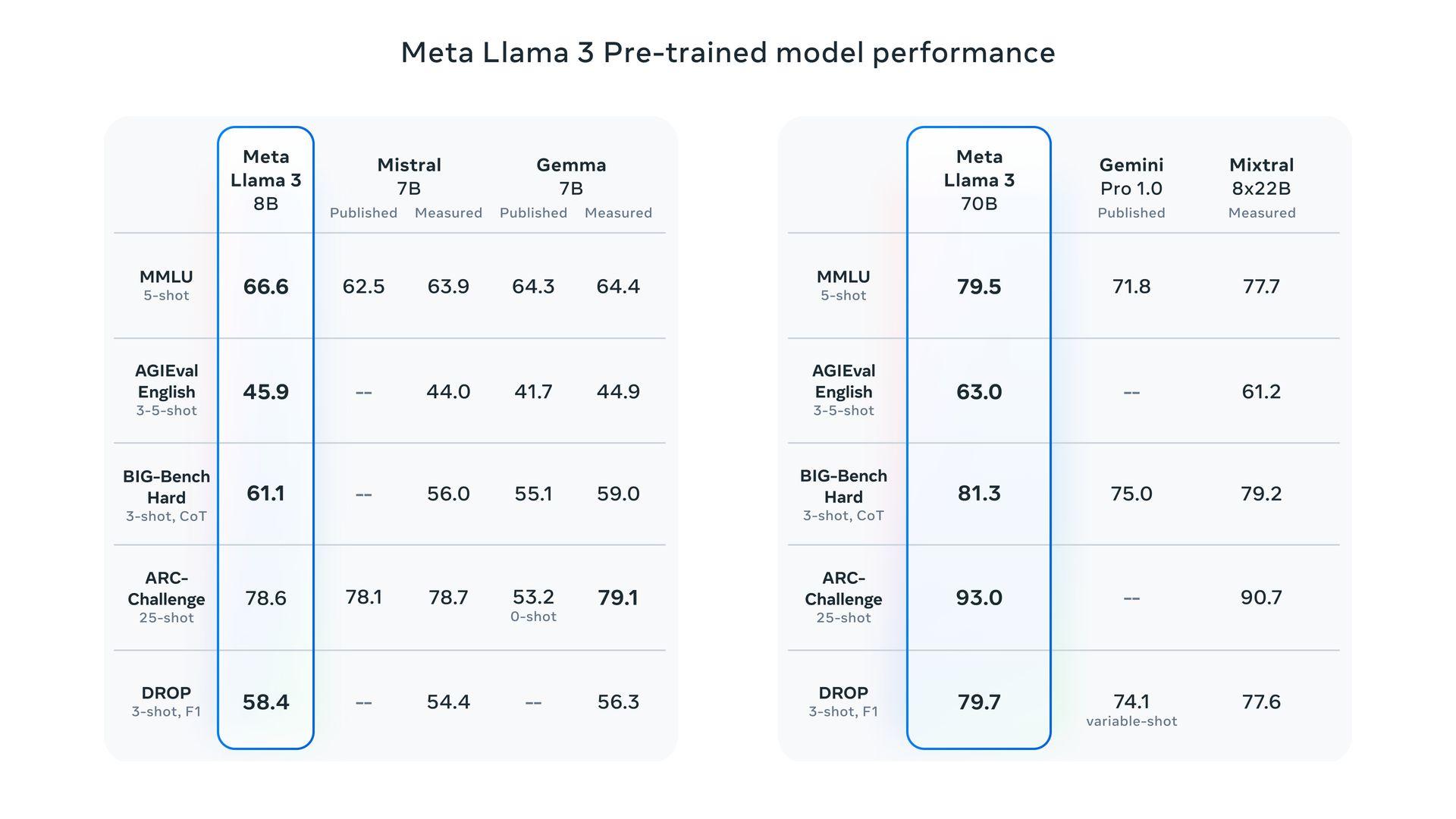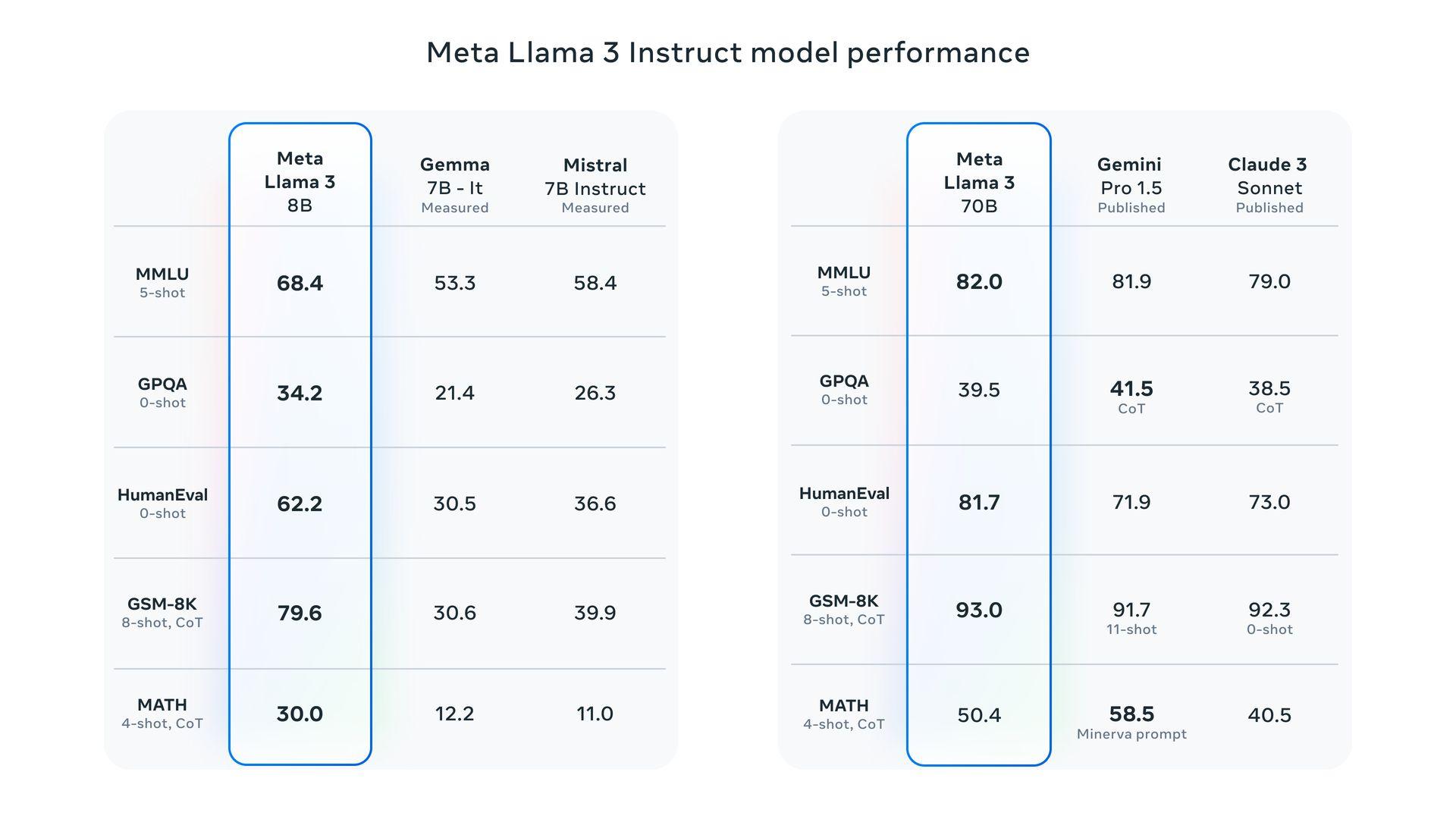While bringing the Meta AI update to every platform, Meta also published the Llama 3 benchmark for technology enthusiasts.
The benchmark offers independent researchers and developers a standardized testing suite to evaluate Llama 3’s performance on various tasks.
This transparency allows users to compare Llama 3’s strengths and weaknesses against other LLMs using the same benchmark, fostering a more objective understanding of its capabilities.
What does the Llama 3 benchmark show?
Meta AI established the Llama 3 benchmark, a comprehensive suite of evaluations designed to assess LLM performance across various tasks. These tasks include question answering, summarization, following instructions, and few-shot learning. The benchmark serves as a crucial tool for gauging Llama 3’s strengths and weaknesses against other LLMs.
While a direct comparison between the Llama 3 benchmark and those used for competitors is challenging due to differing evaluation methodologies, Meta claims that Llama 3 models trained on their dataset achieved exceptional performance across all evaluated tasks. This indicates that Meta AI is on par with the best in the LLM field.
Here’s a deeper look at how Llama 3 benchmarks stack up:
- Parameter scale: Meta boasts that their 8B and 70B parameter Llama 3 models surpass Llama 2 and establish a new state-of-the-art for LLMs of similar scale.
- Human evaluation: Meta conducted human evaluations on a comprehensive dataset encompassing 12 key use cases. This evaluation positions the 70B instruction-following Llama 3 model favorably against rivals of comparable size in real-world scenarios.
These are Meta’s own evaluations, and independent benchmarks might be necessary for a more definitive comparison.

Open-weights vs open-source
It’s crucial to differentiate between “open-weights” and “open-source.” While Llama 3 offers freely downloadable models and weights, it doesn’t fall under the strict definition of open-source due to limitations on access and training data (unlike truly open-source software).
Llama 3 comes in two sizes: 8 billion (8B) and 70 billion (70B) parameters. Both are available for free download on Meta’s website after a simple sign-up process.
A technical deep dive into Meta AI
Llama 3 offers two versions:
- Pre-trained: This is the raw model focused on next-token prediction.
- Instruction-tuned: This version is fine-tuned to follow specific user instructions.
Both versions have a context limit of 8,192 tokens.

Training details
- Training hardware: Meta employed two custom-built clusters, each containing a staggering 24,000 GPUs, for training Llama 3.
- Training data: Mark Zuckerberg, Meta’s CEO, revealed in a podcast interview that the 70B model was trained on a massive dataset of around 15 trillion tokens. Interestingly, the model never reached a point of saturation (peak performance) during training, suggesting there might be room for further improvement with even larger datasets.
- Future plans: Meta is currently training a colossal 400B parameter version of Llama 3, potentially putting it in the same performance league as rivals like GPT-4 Turbo and Gemini Ultra on benchmarks like MMLU, GPQA, HumanEval, and MATH.
The challenges in Llama 3 benchmark
We need to acknowledge the limitations of current LLM benchmarks due to factors like training data contamination and cherry-picking of results by vendors.
Despite these limitations, Meta provided some benchmarks showcasing the performance of Llama 3 on tasks like MMLU (general knowledge), GSM-8K (math), HumanEval (coding), GPQA (advanced questions), and MATH (word problems).
These benchmarks position the 8B model favorably against open-weights competitors like Google’s Gemma 7B and Mistral 7B Instruct. The 70B model also holds its own against established names like Gemini Pro 1.5 and Claude 3 Sonnet.

Accesibility of Llama 3
Meta plans to make Llama 3 models available on major cloud platforms like AWS, Databricks, Google Cloud, and others, ensuring broad accessibility for developers.
Llama 3 forms the foundation of Meta’s virtual assistant, which will be prominently featured in search functionalities across Facebook, Instagram, WhatsApp, Messenger, and a dedicated website resembling ChatGPT’s interface (including image generation).
Additionally, Meta has partnered with Google to integrate real-time search results into the assistant, building upon their existing partnership with Microsoft’s Bing.
Featured image credit: Meta






